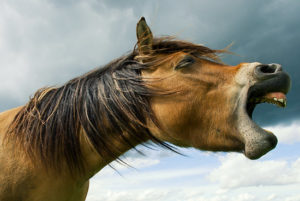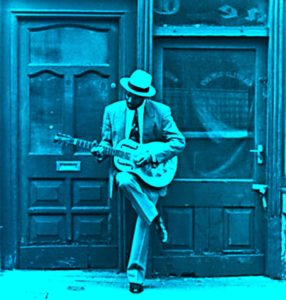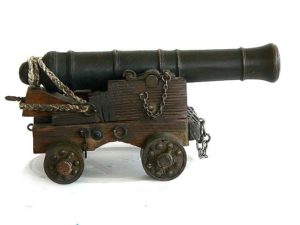Spread the Word – Equestrian and Maritime idioms
There are many important sporting events held in June and two prime examples are Royal Ascot and The America’s Cup. This month’s Spread the Word uses these two events as inspiration as we look at equestrian and maritime idioms created centuries ago and still in use today.
Our first stop is the racecourse at Ascot, Berkshire, England where every June its most famous racing meeting: Royal Ascot, takes place. It is called ‘Royal Ascot’ as it has been attended by the reigning monarch since the early eighteenth century. Ascot is just as important as a social event as it is a sporting one, perhaps even more so!
Of course, the role of the horse is not only as a beast of burden but also as a much-loved companion, particularly in rural Britain. Perhaps this helps to explain the idiomatic richness that surrounds the figure of the horse.
Let’s have a look at a few examples:
Hold your horses! is a common exclamation that means to hold on, wait and be patient and is very useful at exasperating moments! “Hold your horses, we haven’t won yet!» or «Hold your horses – let me speak!”
Don’t look a gift horse in the mouth is a great way to express the idea that you should always be grateful when you receive a gift… For example, if you’ve been invited to a restaurant that’s not one of your favourites – it’s still a free lunch. Don’t complain! The origin refers to how you can assess a horse’s age by looking at its teeth.
To eat like a horse, is easy to remember and understand – horses are big animals and eat a lot! (Anyone know the opposite? To eat like a bird)
Another useful expression is to get off your high horse – if you tell someone this, you are suggesting they stop behaving in a superior and self-righteous manner. So the next time you need to defend yourself against the condescension of others, you know what to do!
Finally, the term dark horse is very common and has been used in film, book and song titles, but what does it mean exactly? Well, it’s used to refer to an unknown competitor who unexpectedly wins something. It is common in sporting and political contexts… for example, look at this headline from November 2016!
Donald Trump: Billionaire reality TV star turns presidential dark horse
The term began as a horse racing term for a race horse that is unknown to gamblers and thus difficult to place betting odds on.
We are now going to move on to the world of sailing. From the end of May till the end of June, the America’s Cup races take place at a different international venue every year (this year, the 35th America’s Cup will be held in Bermuda) and is one of the oldest international sporting trophies in history. The sport is a competition between two sailing yachts. One yacht is the defender who represents the yacht club (holder of the America’s Cup) and the second yacht is the challenger.
Sailing is another area that is rich in expressions and here are a few examples that we’ve chosen for you.
Now who knew, that the expressions to feel blue or to have the blues (and the term for a whole genre of music) came from the world of sailing? Well, this meaning originates from a custom that was practiced when a ship lost its captain during a voyage. The ship would fly blue flags and have a blue band painted along her hull when she returned to port.
Another expression that continues to be in common usage is to be over a barrel – it means that you’re in a position where you don’t have any choice or in are in a weak position; for example, in a sales negotiation: “Once the competitors found a flaw in our product, they had us over the barrel…”. The origin? Well, the position a sailor would be in if punished and had to be whipped. So, no, not a good place to be.
Perhaps you’ve been in a situation where someone has told you to toe the line, meaning to accept the authority of the group and conform to it. Politicians, for example, are expected to toe the party line and not do or say anything that conflicts with their party’s views. The term comes from an old naval term that refers to a ship’s crew when called to gather and form a line on the ship’s deck.
I’m sure you know that the word posh is used in Britain to denote those of the upper-class or something connected to them, like a posh accent, flat or neighbourhood. There’s a great story about its origin but unfortunately there’s no proof it’s true! The idea is that the term refers to the acronym Port Out, Starboard Home, which was the more comfortable accommodation, out of the heat of the sun, on ships between England and India back in the nineteenth and early twentieth century.
And our last expression, also dating from nautical days-gone-by, is loose cannon, which refers to someone unpredictable and dangerous in some way. This term comes from when a ship’s cannon would come loose from where it was tied on deck. The idea of this large, dangerous object sliding all over the place certainly gives us a useful visual reference for danger!











